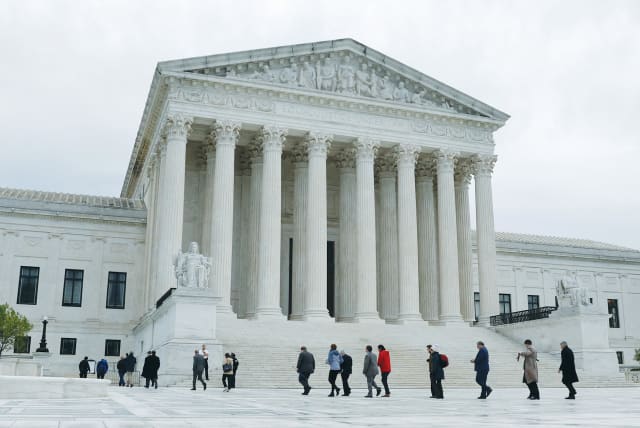US Supreme Court turns away case on charter school's mandatory skirts for girls

Turning away an appeal by Charter Day School Inc, the justices left in place a lower court's decision that the dress code discriminates against students based on gender in violation the Constitution
The US Supreme Court on Monday declined to hear a North Carolina public charter school's defense of its blocked requirement that girls wear skirts - a student uniform policy that its founder explained is aimed at treating women like "fragile vessels."
Turning away an appeal by Charter Day School Inc, the justices left in place a lower court's decision that the dress code discriminates against students based on gender in violation the US Constitution's 14th Amendment promise of equal protection under the law.
Charter schools in North Carolina are tuition-free, open to attendance by all, and receive state funding for each student. They are run by private, nonprofit corporations rather than a public school district.
'Mutual respect between boys and girls'

At issue in the case was whether Charter Day School in the southeastern North Carolina town of Leland, which offers a "traditional-values-based education" to students from kindergarten to Grade 8, was subject to the Constitution's equal protection provision when it enforced the skirt policy.
The school said its uniform policy was designed to foster classroom discipline and "mutual respect between boys and girls."
The school's founder, Baker Mitchell, told parents that the policy is aimed at preserving chivalry, with women "regarded as a fragile vessel that men are supposed to take care of and honor," according to court papers. Boys may wear pants or shorts.
Represented by the American Civil Liberties Union, three students and their parents or guardians sued the school alleging that the skirts requirement is rooted in gender stereotypes, violating the 14th Amendment.
The plaintiffs sued under a federal law commonly known as Section 1983 that allows individuals to take state officials to court for alleged violations of their constitutional or statutory rights. The school defended against the lawsuit by claiming it is not a state actor and therefore cannot be sued under Section 1983.
The Richmond, Virginia-based 4th US Circuit Court of Appeals in 2022 ruled that charter schools in North Carolina are state actors because they are publicly funded, their employees are considered public school employees and the state has delegated to them a duty to educate students. The 4th Circuit then found Charter Day School's dress code unconstitutional.
The skirt requirement telegraphs to children that female students are fragile and warrant different treatment than males - "stereotypes with potentially devastating consequences for young girls," the 4th Circuit ruling stated.
In its appeal, the school said the 4th Circuit's ruling undermines charter schools by treating "private operators as the constitutional equivalent of government-run schools, squelching innovation and restricting parental choice."
Asked by the Supreme Court to weigh in on whether or not to hear the case, President Joe Biden's administration filed a brief urging the justices to deny the school's appeal.
Jerusalem Post Store
`; document.getElementById("linkPremium").innerHTML = cont; var divWithLink = document.getElementById("premium-link"); if (divWithLink !== null && divWithLink !== 'undefined') { divWithLink.style.border = "solid 1px #cb0f3e"; divWithLink.style.textAlign = "center"; divWithLink.style.marginBottom = "15px"; divWithLink.style.marginTop = "15px"; divWithLink.style.width = "100%"; divWithLink.style.backgroundColor = "#122952"; divWithLink.style.color = "#ffffff"; divWithLink.style.lineHeight = "1.5"; } } (function (v, i) { });
